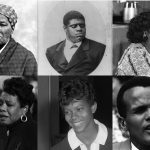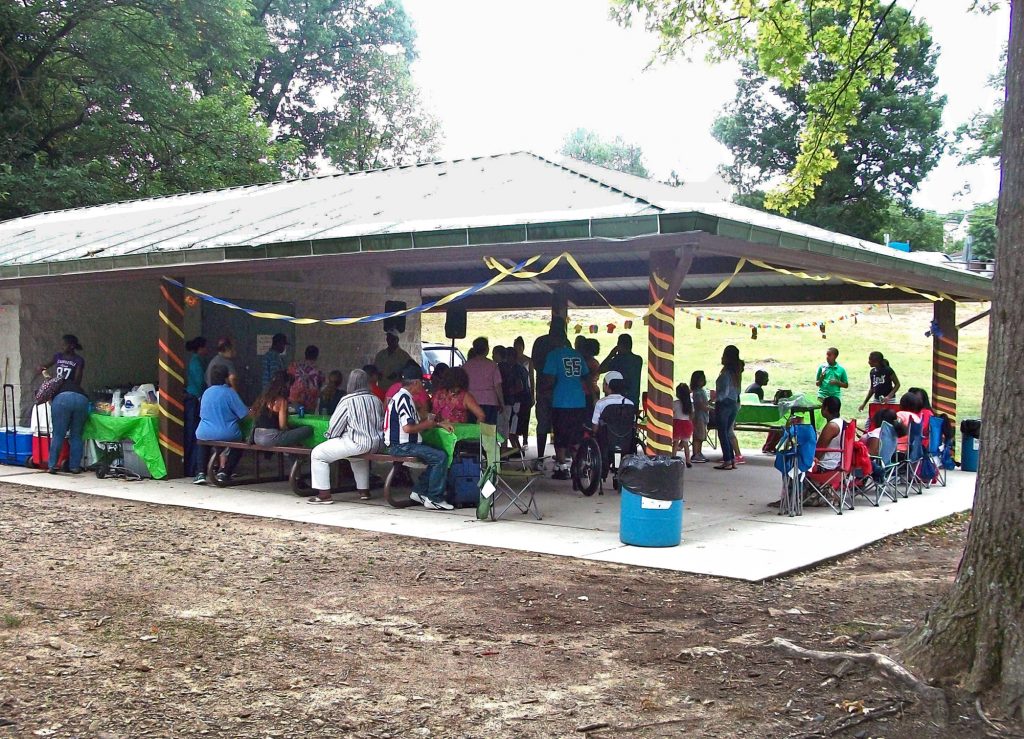
Participants of our Weekend Recreation program celebrate the summer at a local park.
Following the well-publicized horrific abuse of adults at with intellectual disabilities Willowbrook in the late 1970s (but much later than the horrors Nellie Bly reported in Ten Days in a Mad House), President Reagan in 1987 proclaimed March as Developmental Disabilities Awareness Month. This act was part of the greater trend toward inclusion, embraced in the Individuals with Disabilities Education Act (IDEA) in 1975 and many subsequent amendments. The theme for 2020 is #OurTimeToShine.
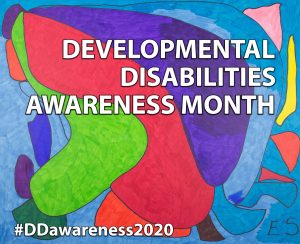 March is Developmental Disabilities Awareness Month. Organized by the National Association of Councils on Developmental Disabilities, the Association of University Centers on Disabilities, and the Disability Rights Network, this event seeks to foster awareness of developmental disabilities, tell stories of people who live with such a disability, and document their lives.
March is Developmental Disabilities Awareness Month. Organized by the National Association of Councils on Developmental Disabilities, the Association of University Centers on Disabilities, and the Disability Rights Network, this event seeks to foster awareness of developmental disabilities, tell stories of people who live with such a disability, and document their lives.
According to the U.S. Centers for Disease Control (CDC), “Developmental disabilities are a group of conditions due to an impairment in physical, learning, language, or behavior areas.” The American Association on Intellectual and Developmental Disabilities identifies factors of intelligence and adaptive behavior:
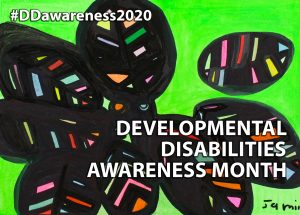 Intelligence “involves the ability to reason, plan, solve problems, think abstractly, comprehend complex ideas, learn quickly, and learn from experience.” The IQ test is a commonly used assessment tool, but should never be the sole source. Intelligence can manifest itself in many ways (e.g., memory, musical or artistic ability).
Intelligence “involves the ability to reason, plan, solve problems, think abstractly, comprehend complex ideas, learn quickly, and learn from experience.” The IQ test is a commonly used assessment tool, but should never be the sole source. Intelligence can manifest itself in many ways (e.g., memory, musical or artistic ability).- Adaptive behavior comprises those practical and social skills of everyday living.
– Conceptual skills include receptive and expressive language, literacy, handling money, and independent self-direction.
– Social skills include getting along with others, taking responsibility, and having empathy. In addition self-esteem is an important component, especially self-advocacy.
– Practical skills involve activities of daily living such as eating, dressing, mobility and toileting, and performing basic housekeeping and personal care.
Most important, these limitations usually co-exist with personal strengths, which vary from individual to individual. It should also be noted that the terms “retarded” and “mental retardation,” once commonplace, are no longer considered acceptable. (“Mental retardation” does retain some legal use in SSI documents.)
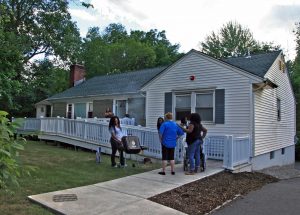
Group homes such as this allow residents to have their personal space while having easy access to public spaces in the community.

A job in the community affords all individuals a sense of self-esteem, dignity, and independence.
About 4.6 million Americans, one in six children, has one or more developmental disabilities or other developmental delay. It is our mission to ensure that the individuals with developmental disabilities in our care are included in the community, where they live and work, for their time to shine.

